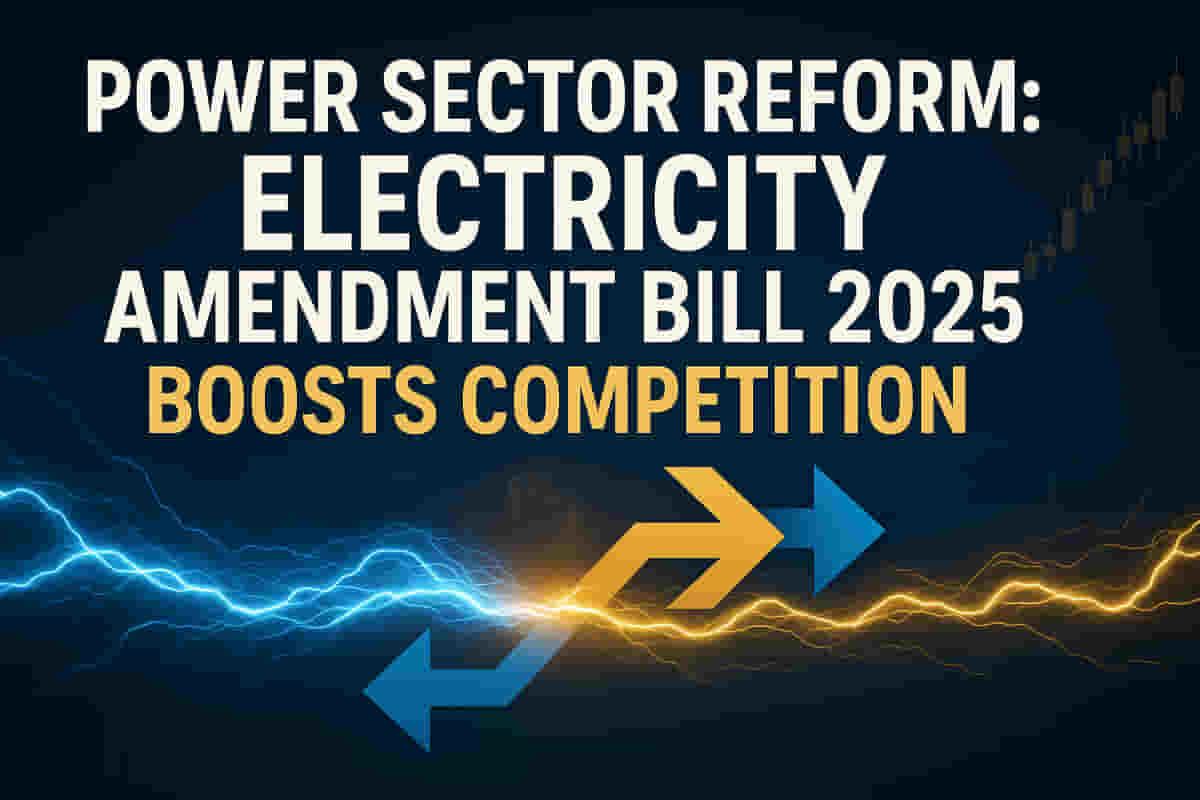Power Ministry Unveils Electricity Amendment Bill 2025 for Sector Reform, Competition, and Farmer Subsidy Protection
Energy
|
Updated on 30 Oct 2025, 03:07 pm
Reviewed By
Aditi Singh | Whalesbook News Team
Short Description :

▶
Detailed Coverage :
The Power Ministry has described the Electricity (Amendment) Bill 2025 as a forward-thinking reform designed to bolster the power distribution sector through financial prudence, robust competition, and increased efficiency. The legislation is intended to establish a future-ready power infrastructure while safeguarding subsidized tariffs for farmers and other qualifying consumers. State Governments will continue to offer these subsidies under Section 65 of the Act. The Bill encourages healthy competition between government-owned and private distribution companies (Discoms) for electricity supply, overseen by State Electricity Regulatory Commissions (SERCs). The Ministry asserts that the passage of this Bill will lead to superior services, greater efficiency, and genuine choice for consumers, fostering competition based on performance.
Impact This reform is expected to significantly impact the power sector by driving down overall electricity costs through improved efficiency and accountability. Shared network usage will prevent duplication of infrastructure, and competition is anticipated to reduce technical and commercial losses, which often mask inefficiencies and theft in monopoly models. Cost-reflective tariffs will help break the cycle of Discom debt, ensuring reliable service and network upgrades. Eliminating hidden cross-subsidies for industries and replacing them with transparent, budgeted subsidies will improve the competitiveness of businesses and aid job creation. Regulated wheeling charges will ensure utilities are adequately funded. The model promotes regulated competition, benefiting both government and private entities, and preserves federal balance by maintaining state autonomy in key regulatory functions. Rating: 8/10
Difficult Terms Discoms: Distribution companies responsible for supplying electricity to consumers. SERCs: State Electricity Regulatory Commissions. Independent bodies that regulate electricity tariffs and operations within a state. Cost-reflective tariffs: Electricity prices that cover the actual cost of generating, transmitting, and distributing power, plus a reasonable profit. Cross-subsidy: A system where consumers paying higher tariffs subsidize those paying lower tariffs. Wheeling charges: Fees paid to use the electricity distribution network to deliver power. Universal Service Obligation (USO): The requirement for electricity providers to supply electricity to all consumers in their area. Concurrent List: A list in the Indian Constitution allowing both central and state governments to legislate on certain subjects. Cooperative Governance: A system of collaboration between different levels of government.
More from Energy

Energy
India's green power pipeline had become clogged. A mega clean-up is on cards.
Latest News

Auto
Suzuki and Honda aren’t sure India is ready for small EVs. Here’s why.

Brokerage Reports
Stocks to buy: Raja Venkatraman's top picks for 4 November

Mutual Funds
Quantum Mutual Fund stages a comeback with a new CEO and revamped strategies; eyes sustainable growth

Tech
Why Pine Labs’ head believes Ebitda is a better measure of the company’s value

Banking/Finance
SEBI is forcing a nifty bank shake-up: Are PNB and BoB the new ‘must-owns’?

Industrial Goods/Services
India’s Warren Buffett just made 2 rare moves: What he’s buying (and selling)
Renewables Sector

Renewables
Brookfield lines up $12 bn for green energy in Andhra as it eyes $100 bn India expansion by 2030
Startups/VC Sector

Startups/VC
a16z pauses its famed TxO Fund for underserved founders, lays off staff
Renewables Sector

Brookfield lines up $12 bn for green energy in Andhra as it eyes $100 bn India expansion by 2030
Startups/VC Sector
